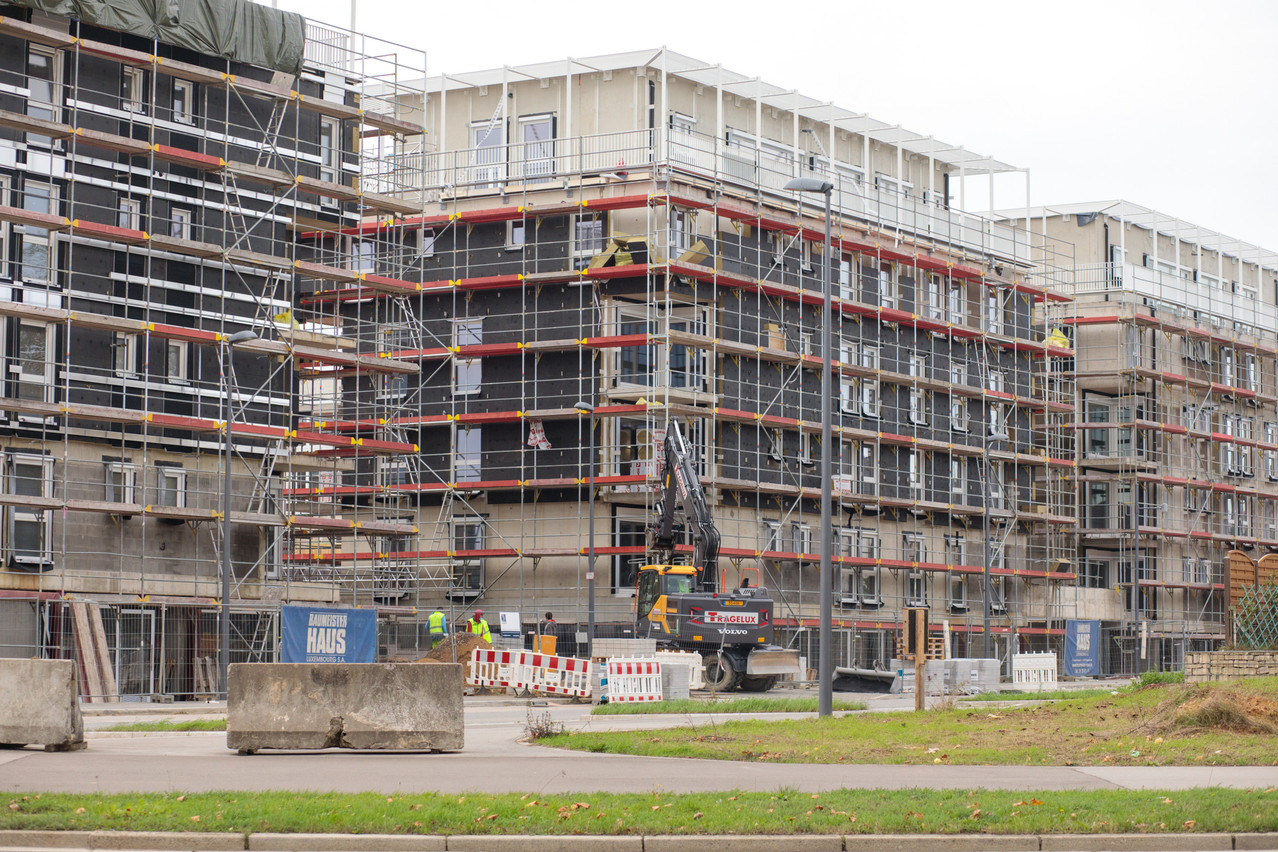Fayot’s proposal during an RTL radio programme on Saturday to sounds like a quick fix to the housing crisis. Agents are driving up prices to make bank and need to be reined in.
Already, many agencies don’t charge a 3% fee because the rate is up for negotiation with the sellers, who may not want to shell out such a big sum. Lowering the fee won’t benefit the buyers but the sellers, whose costs will shrink. Believing that this will make owners lower their prices in an “anything goes” market is, frankly, naïve.
Adversely, it could open the door to crooked side deals for agencies to make up for the loss of income. Or lead agents to make even higher bids to end up with the same net sum.
Agency oversaturation
There is a need to regulate real estate agencies. The head of Luxembourg’s Chambre Immobilière, Jean-Paul Scheuren, last year that there are too many agents for the market, with not enough quality control in place. This has led to predatory behaviour, agents cold-calling or simply knocking on people’s doors asking if they have property to sell.
In the same interview on RTL, Fayot accused Luxembourg’s right-wing ADR party of “seeking scapegoats for everything that goes wrong in our country.” A broad accusation against all real estate agencies in the country of inflating prices for personal gain arguably does little else.
A real estate agent landing a sale won’t pocket the whole commission. They are either employed or contracted by an agency, which will take its share to cover costs, from rent to advertising. Agents that are self-employed will have to pay 25% social security in addition to taxes on their earnings. For a big sale there might be a long period of drought in a market that is oversaturated with agents.
There will always be black sheep. Ask anyone about their dealings with a real estate agency in Luxembourg and they will have at least one horror story to tell. But there are also sellers who know they can push asking prices up because there is enough money in the market for properties to be snatched up, leaving small buyers out in the cold.
Tax reform
The Luxembourg state, too, earns a handsome sum from the high prices. A family buying a €1m property--and that’s the lower end of the spectrum--will have to pay €70,000 in taxes, adding to their budget. A €20,000 tax credit is paid by the government only once. If you used it up on a smaller property as a first-time buyer, you’re not going to get it again.
The government’s registration duties, estates and VAT authority--the “enregistrement”, which calculates the tax due based on the price of the property--in the meantime has been known to send reasonably priced prospective transactions back to sellers and agents, saying that the home is being sold under value, stacking the system against responsible players.
The government in 2014 introduced a super-reduced 3% VAT rebate for individuals building or renovating their own home, upping costs for investors from 15% to 17%. This, too, was hailed as a solution for bringing down prices. A look at the market since then reveals that this failed magnificently. If anything, investors building to rent--with accommodation urgently needed--were incentivised to charge tenants more.
On the other hand, the government has been dragging its heels for years on a reform of property tax while 49 landowners sit on a quarter of Luxembourg’s available building plots. Among them are real estate developers and construction groups, such as Arendt & Fischbach, Giorgetti (both owning more than 50 hectares each), Tracol, Stugalux and Promobe (each owning between 25 to 50 hectares).
The City of Luxembourg is also one of the biggest land hoarders and has handed valuable projects, such as the development of the , to foreign investors from Abu Dhabi.
Systemic crisis
Housing has become a systemic crisis in Luxembourg. There is no longer one thread to pull that will resolve the problem. The state needs to build massively to offer affordable housing, not only needed for low-income households but also a middle class that is being edged out. It needs to clamp down on speculation. It should look at developers’ profit margins, no easy task if it wants to keep them building apace.
We all know that the Luxembourg housing market is broken. It has been for years. It is only now that the problem reaches a middle-class Luxembourg electorate that the government is springing into action after years of neglect. Opposition leader Claude Wiseler (CSV) in a last year admitted that his party had failed to anticipate this crisis during its long stay in power.
Luxembourg will keep growing and as it fails to provide housing will become less attractive for the expats and highly skilled staff it needs to sustain its growth.
Complex problems require complex solutions and political bravery beyond platitudes.
